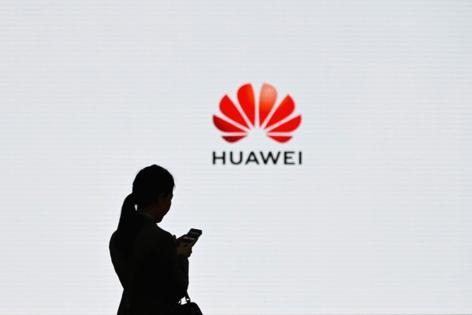Huawei's secret ally in the US-China tech war: A science nonprofit based in DC
Published in Business News
When Optica Chief Executive Officer Elizabeth Rogan traveled to China in November, the prestigious U.S. scientific society she runs promoted the trip internally and on social media. But it omitted a key stop: her visit to Huawei Technologies Co.’s headquarters, according to communications and documents reviewed by Bloomberg News.
By April, Rogan’s under-the-radar meetings at Huawei had become part of a whistleblower complaint about her nonprofit’s growing partnership with a Chinese telecommunications giant that’s in the crosshairs of U.S. national-security officials.
A review of internal Optica corporate records shows the alliance ran far deeper than publicly known, blossoming over decades even as U.S.-China tensions over technology soared.
The findings expand on a Bloomberg News report in May that Huawei was secretly sponsoring a research competition run by Optica’s foundation. That arrangement enabled Huawei to fund millions of dollars worth of cutting-edge studies at U.S. universities without their knowledge, including at schools that ban their researchers from taking Huawei money.
The revelations prompted a congressional investigation and a decision by Washington-based Optica to return the funds Huawei had committed to the program and to remove the company’s representation on the panel of judges.
Scrutiny over the funding arrangement has dealt a blow to a partnership that effectively helped Huawei preserve access to a pipeline of top-notch U.S. scientists despite its pariah status in Washington. For example, according to Bloomberg’s latest findings, at least three of the six U.S. researchers Huawei secretly sponsored through the Optica competition won Pentagon funding around the same time.
An April 4 complaint, filed to Optica’s general counsel by an employee citing the group’s whistleblower policy, flagged Rogan’s “undisclosed” visit to Huawei’s headquarters and raised concerns about the company’s role in choosing which scientists would receive funding through the competition. The whistleblower also alleged the contest risked compromising U.S.-government-funded work, including efforts backed by the Defense Advanced Research Projects Agency, or DARPA.
“I believe that research that is funded by DARPA and other agencies and patents to which the U.S. government has certain rights have been willfully exported to Huawei and therefore the Chinese government” through the competition, the complaint says, without elaborating on that allegation.
An Optica spokesman said that claim is “simply incorrect” and that “no research has ever been provided by or thru Optica to Huawei or any government entity.” In an internal communication to staff on June 3, Rogan said the group was “actively reviewing our policies to ensure both best practices and maximum transparency.”
A Huawei spokesman said in a statement that the company funded the Optica-branded research competition in order to “motivate young scientists, encourage academic exchange, and promote global knowledge sharing.” He didn’t address questions about Bloomberg’s new findings.
...continued
©2024 Bloomberg L.P. Visit bloomberg.com. Distributed by Tribune Content Agency, LLC.







Comments